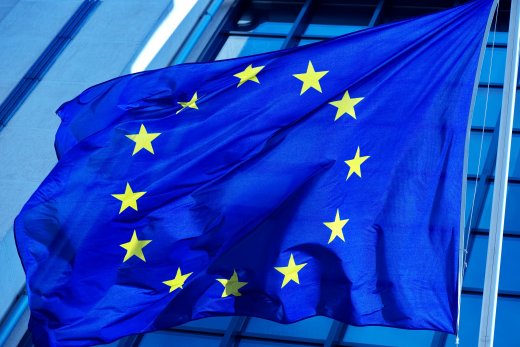Data Sovereignty Now coalition supports EU leaders’ call to do more and move faster based on a concrete roadmap

Earlier this week, four EU leaders issued a strong call to the European Commission to make Europe ‘digitally sovereign’ as soon as possible. As the Data Sovereignty Now (DSN) coalition we agree with these EU leaders that the European Commission needs to do more and move faster to achieve digital sovereignty.
The letter, which was signed by the German Chancellor Angela Merkel and Prime Ministers Mette Frederiksen of Denmark, Sanna Marin of Finland and Kaja Kallas of Estonia, was published on Monday. The timing of the letter comes ahead of the European Commission’s proposals on how to approach ‘Europe’s Digital Decade’, which are planned for later this month. Initiatives related to artificial intelligence and digital identity are also in the pipeline.
European values
Like the EU leaders, at DSN we too feel that urgent action is required that asserts the European Values such as democracy, transparency privacy and security while also fostering future prosperity in the digital age. In order for citizens and organisations to gain (or regain) self-determination over their data – i.e. to achieve data sovereignty – it is crucial that the European Commission firstly makes the right decisions now and subsequently moves fast to roll them out.
Practical and concrete next steps
The letter to the European Commission outlines a three-step plan for reinforcing the EU’s position in the digital sphere. The first step describes the need to identify systems of critical technologies and strategic sectors. The next step is about strengthening and refining its policy approach for these systems and sectors. The third step relates to the need to put a monitoring system in place.
We fully agree with the letter’s overall aim of expanding and accelerating the efforts towards self-determination over data. In fact, as DSN we advocate a very concrete and feasible path towards data sovereignty.
Data sovereignty by creating a soft infrastructure
In our view, establishing data sovereignty requires the creation of a digital ‘soft infrastructure’ for data sharing, for all data spaces, all industries and all geographies: the data equivalent of GSM. When the EU introduced the Global System for Mobile Communications (GSM) in the 1980s, it redefined the global telecom industry.
This decentralised paradigm with requirements relating to the usage of standards, governance and adherence obligations allowed a worldwide ecosystem of telecom providers to develop without compromising on the end-user service in terms of reach and data portability. Nowadays, it is possible for users to change providers without losing their data (i.e. their personal mobile number). This is a real-life example of data sovereignty before the term had even been coined.
Creating an equivalent set of requirements or soft infrastructure in the data domain covering the usage standards, governance and adherence obligations will have a similar effect on the data economy. This digital soft infrastructure will give organisations and citizens not only legal control but also functional control of their data, enabling them to re-use it elsewhere as they choose. This will truly unlock the full potential of data, enabling it to flow freely and establishing a firm basis for a thriving human-centric data economy.
A solid and stable foundation for the digital economy
Like Chancellor Angela Merkel and Prime Ministers Mette Frederiksen, Sanna Marin and Kaja Kallas, we believe that the digital economy as it stands today is at risk. It is therefore essential to unleash the full potential of data and build a solid and sustainable foundation for the next phase of the digital economy by:
- Making data sovereignty the central design principle of the data economy as a whole and a prerequisite for every organisation’s own data architecture
- Creating a soft infrastructure for decentralised data sharing based upon European values, built on a sound consent mechanism that works for every entity, whether a person, business or government
- Focusing on the adoption of data sovereignty by organisations and end users. Instead of prescribing technology solutions, we need to support businesses, governments and their IT functions / partners in developing their own implementations, within the context of this unified soft infrastructure.
The European Commission has now the opportunity and the responsibility to propose a new value-based data infrastructure to Europe and the world, just as GSM was a European initiative that benefits the world.
|
INNOPAY supports the Data Sovereignty Now campaign which underlines the importance of self-control over data (‘data sovereignty’) by organisations and individuals
|



